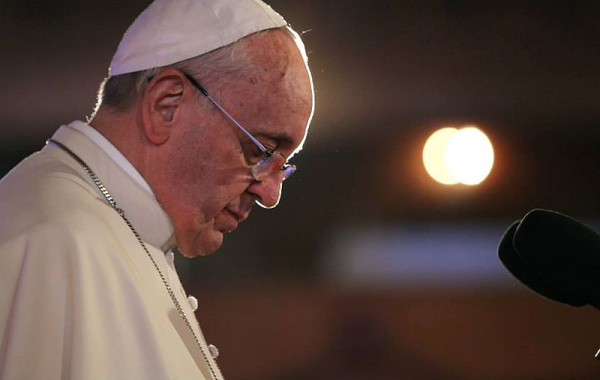
If Pope Francis' most recent request is accepted, it is possible that the disagreement that has lasted for centuries between Eastern Orthodox and Roman Catholic churches on how to determine the date of Easter may finally be resolved.
Pope Francis, at a meeting on November 19 with Mar Awa III, the head of the Assyrian Church of the East, called for an end to misunderstandings regarding the manner in which Catholics and Eastern churches establish the date of Easter each spring.
Pope Francis Calling To End Disagreements Between Catholic, Orthodox
"Let us have the courage to put an end to this division that at times makes us laugh: 'When does your Christ rise again?,'" Pope Francis told Mar Awa III, as quoted by The Washington Times.
Pope Francis even mentioned at the meeting that they should just follow what Saint Paul VI said, in which they will agree and will go as they say.
Meanwhile, On June 30, during a meeting with an Eastern Orthodox delegation that took place in the Vatican, Pope Francis discussed the importance of ecumenical dialogue in the process of constructing lasting peace.
In addition, Cardinal Kurt Koch, who serves as the prefect of the Dicastery for the Promotion of Christian Unity, was also present at the meeting.
As reported by the Catholic News Agency, Pope Francis spoke during the gathering, stressing that Christ alone can bring about global peace. According to him, the church should no longer organize its priorities in line with the world's norms of power and expediency, but rather in light of the Gospel's daring prophetic message of peace.
Francis added that reconciliation among separated Christians, as a way to contribute to peace between peoples in conflict, is a pertinent consideration in a world torn apart by a terrible and senseless war of aggression in which many Christians are battling each other.
Pope Francis also remarked that Christians have a responsibility to show charity toward Christ, who is present among the world's needy, injured, and displaced people.
The Pope has expressed his wish that the ongoing theological dialogue between Eastern Orthodox Christians and Catholics will advance through the promotion of a new mentality that, while being aware of the mistakes of the past, may assist both groups in looking together to the present and the future.
Religious Disagreements, Political Conflicts
There was a complicated interplay between religious and political tensions that led to the Great Schism. When it came to the sacrament of communion, the western (Roman) and eastern (Byzantine) branches of the church had many religious conflicts, one of which was whether or not unleavened bread should be used.
Additionally, the Western idea that clergy should stay celibate and the precise phrasing of the Nicene Creed are both points of contention within the religious community.
As the National Geographic revealed, the religious tensions were exacerbated by a number of political disputes, many of which focused on Rome's authority. A patriarch of the Eastern Orthodox Church was seen as subordinate to the pope, the leader of the Catholic Church in the West.
Both groups acknowledged their own heads of church, but differences arose when Michael Cerularius and the Eastern Orthodox Church were excommunicated by the Western Church. In response, Pope Leo III and the Roman Catholic Church were excommunicated by the Eastern Orthodox Church.
Related Article: Pope Francis Boots Catholic Church's Caritas Internationalis Leadership, Appoints Temporary Admin












